- Home
- Frank Herbert
The Lazarus Effect w-3 Page 13
The Lazarus Effect w-3 Read online
Page 13
Keel patted the couch beside him and thought of Joy, how much she would like that surface. A hedonist, Joy. He tried to picture her resting on the couch. A desire for Joy's comforting presence filled him with sudden loneliness. Abruptly, he wondered about himself. He had been mostly a loner throughout his life, only the occasional liaison. Was the proximity of death working a fearful change on him? The thought disgusted him. Why should he inflict himself on Joy, saddle her with the sorrow of a permanent parting?
I am going to die soon.
He wondered briefly who the Committee would elect as Chief Justice to replace him. His own choice would be Carolyn, but the political choice would be Matts. He did not envy whoever they chose. It was a thankless job. There were things to do before he made his final exit, though. He stood and steadied himself against the couch. His neck ached, as usual. His legs felt rubbery and didn't want to support him at first. That was a new symptom. The deck underfoot was hard plasteel and he was thankful that it, like the walls, was heated. He waited for strength to return, then, leaning against the wall, made his way toward the door at his left. There were two buttons beside the door. He pressed the lower one and heard a panel slide back behind the couch. He looked toward the sound and his heart shifted into triple-time.
The panel had concealed a mural. He stared at it. The thing was frighteningly realistic, almost photographic. It showed a surface construction site at least half-destroyed, flames everywhere and men wriggling in the tentacles of hylighters drifting overhead.
Hylighters died with the kelp, he thought. This was either an old painting or somebody's imaginative reconstruction of history. He suspected the former. The rich suns-set background, the intimate detail of hylighters - everything focused on one worker near the center who pointed a finger at the viewer. It was an accusing figure, dark-eyed and glaring.
I know that place, Keel thought. How is it possible? Familiarity was stronger than the flutterings of deja vu. This was real seeing, a memory. The memory told him that somewhere in this room or nearby there was a red mandala.
How do I know this?
He examined the room carefully. Couch, plaz port, the mural, bare walls, an oval hatch-door. No mandala. He walked to the view port and touched it. Cool, the only cool surface in the room. How strange the fixed view port installation was - nothing like it at all on the Islands. Couldn't be. The flex of bubbly around the solid plaz would tear away the organics that sealed it and the heavy, solid material would turn into a thing of destruction during a storm. Drift watchers, mutated cornea, were safer in rough weather even if they did require care and feeding.
The plaz was incredibly clear. Nothing in the feel of it suggested the extreme density and thickness. A small, heavily whiskered scrubberfish grazed the outside, cleaning the surface. Beyond the fish, a pair of Mermen came into view, jockeying a heavy sledge loaded with rocks and mud. They went past him out of sight beyond a slope to his right.
Out of curiosity, Keel fisted the plaz: thump-thump. The scrubberfish continued grazing, undisturbed. Anemone and ferns, grasses and sponges waved in the current beneath the fish. Dozens of other fish, a multicolored mixed school, cleaned the surface of kelp leaves beyond the immediate growth. Larger fish poked along the soft bottom mud, stirring up puffs of gray sediment. Keel had seen this sort of thing in holos but the reality was different. Some of the fish he recognized - creatures from the labs that had been brought for judgment by the Committee before being released in the sea.
A harlequin fish came up below the scrubber and nudged the plaz. Keel remembered the day the C/P had blessed the first harlequin fish before their release. It was almost like seeing an old friend.
Once more, Keel turned to his examination of the room and that elusive memory. Why did it feel so damned familiar? Memory said the missing mandala should be to the right of the mural. He walked to that wall and brushed a finger along it, looking for another panel switch. Nothing, but the wall moved slightly and he heard a clicking. He peered at it. It was not plasteel but some kind of light, composite material. A faint seam ran down the middle of the wall. He put a palm against the surface to the right of the seam and pushed. The panel slid back, revealing a passage, and immediately he smelled food.
He opened the panel wide and walked through. The passage made a sharp turn to the left and he saw lights. Kareen Ale stood there in a kitchen-dining area, her back to him. A rich smell of strong tea and fish broth assailed his nostrils. He drew a breath to speak but stopped as he saw the red mandala. The sight of it above Kareen's right shoulder brought a sigh from Keel. The mandala drew his consciousness into the shapes there, twisting him through circles and wedges toward the center. A single eye peered out from the center, out at the universe. It was unlidded, and rested atop a golden pyramid.
These can't be my memories, he thought. It was a terrifying experience. Ship memories flitted through his mind - someone walking down a long, curved passage, a violet-lighted agrarium fanned out to his left. He felt powerless before the stream of visions. Kelp waved to him from someplace under the sea and schools of fish his Committee had never approved swam past his eyes.
Ale turned and saw the enraptured expression on his face, the fixed intensity with which he stared at the mandala.
"Are you all right?" she asked.
Her voice shocked him out of the other-memories. He exhaled a trembling breath, inhaled.
"I'm ... I'm hungry," he said. There was no thought of revealing the weird memories he had just experienced. How could she understand when he did not understand?
"Why don't you sit here?" she asked. She indicated a small table set for two at one end of the kitchen area beside a smaller plaz port. The table was low, Merman-style. His knees ached just thinking about sitting there.
"I've cooked for you myself," Ale said.
Noting his still bemused expression, she added: "That hatchway in the other room leads to a head with shower and washbasin. Beyond it you'll find office facilities if you require them. The exterior hatchways are out there as well."
He crowded his legs under the table and sat with his elbows on the surface in front of him, his hands supporting his head.
Was that a dream? he wondered.
The red mandala lay directly in front of him. He was almost afraid to focus on it.
"You're admiring the mandala," Ale said. She busied herself once more in the kitchen area.
He lifted his attention and let his gaze trace the ancient lines along their mysterious pathways. Nothing drew him inward this time. Slowly, bits of his own memories crept into his mind, images flashed behind his eyes and stuttered like a crippled larynx, then caught. Awareness reached back to one of his earliest history lessons, a holo being played in the center of a classroom. It had been a docudrama for young children. Islanders loved theatricals and this one had been fascinating. He could not remember the title, but he did recall that it dealt with the last days of Pandora's continents - they didn't look small at all in the holos - and the death of the kelp. That had been the first time Keel had heard the kelp called "Avata." Behind the holo figures playing out the drama in a command post there had been a wall ... and that frightening mural from the outer room. Nearby, as the holo shifted its focus, there had been the red mandala, just as he saw it now. Keel did not want to think how long ago he had watched the drama - more than seventy years, anyway. He returned his attention to Ale.
"Is that the original mandala or a copy?" he asked.
"I'm told it's the original. It's very old, older than any settlement on Pandora. You seem taken by it."
"I've seen it and the mural out there before," he said. "These walls and the kitchen area are more recent, aren't they?"
"The space was remodeled for my convenience," she said. "I've always been drawn to these rooms. The mandala and mural are where they've always been. And they're cared for."
"Then I know where I am," he said. "Islander children learn history through holodramas and ..."
"I know
that one," she said. "Yes, this is part of the old Redoubt. Once it stood completely out of the sea, with some fine mountains behind it, I understand."
She brought food to the table on a tray and set out the bowls and chopsticks.
"Wasn't most of the Redoubt destroyed?" he asked. "The documentary holos were supposed to be reconstructions of a few from before ..."
"Whole sections survived intact," she said. "Automatic latches closed and sealed off much of the Redoubt. We restored it very carefully."
"I'm impressed." He nodded, reassessing the probable importance of Kareen Ale. Mermen had remodeled a part of the old Redoubt for her convenience. She lived casually in a museum, apparently immune to the historical value of the objects and building surrounding her. He had never before met a Merman in a Merman environment, and he now recognized this blank spot in his experience as a weakness. Keel forced himself to relax. For a dying man, there were advantages to being here. He didn't have to decide life and death for new life. No pleading mothers and raging fathers would confront him with creatures who could not pass Committee. This was a world away from the Islands.
Ale sipped her tea. It smelled of mint and suddenly reignited Keel's hunger. He began to eat, Islander-style, setting aside equal portions for his host. The first taste of the fish broth convinced him that it was the richest and most delicately spiced broth he'd ever shared. Was this the general diet for Mermen? He cursed his lack of down-under experience. Keel noticed that Ale enjoyed her own helping of the steaming soup and felt insulted at first.
Another cultural thing, he realized. He marveled that a simple difference in table manners could need translation to avoid international disaster. Unanswered questions still buzzed in his head. Perhaps a more devious approach was indicated - a mixture of Merman directness with Islander obliqueness.
"It's pleasantly dry in these quarters," he said, "but you don't need a sponge. You don't oil your skin. I've often wondered how you get by in a topside environment?"
She dropped her gaze from his face and held her teacup to her lips with both hands.
Hiding, he thought.
"Ward, you are a very strange person," she said as she lowered the cup. "That is not the question I expected."
"What question did you expect?"
"I prefer to discuss my immunity from the need for a sponge. You see, we have quarters down under that are kept with a topside environment. I was raised in such quarters. I'm acclimated to Islander conditions. And I adapt very quickly to the humidity down under - when I have to."
"You were chosen as an infant for topside duty?" There was hesitation and shock in his voice.
"I was chosen then for my present position," she said. "A number of us were ... set aside in the possibility that some of us would meet the mental and physical requirements."
Keel stared at her, astonished. He had never heard of such a cold dismissal of someone's entire life. Ale had not chosen her own life! And, unlike most Islanders, she had a body that in no way restricted her from any trade she chose. He remembered suddenly how she planned everything - a planned person who planned. Ale had been ... distorted. She probably saw it as training, but training was just an acceptable distortion.
"But you do live a ... a Merman life?" he asked. "You follow their customs, you swim and ..."
"Look." She unfastened her tunic at the neck and dropped the top of it, turning her breasts away from him to expose the shoulders. Her back was as clear-skinned and pale as weathered bone. At the top of her shoulder blades the skin had been pinched into a short strip of ridge adjacent to the spine. There she carried the clear pucker-mark of an airfish, but in a peculiar place. He caught the meaning immediately.
"If that mark were on your neck, Islanders might be distracted when they met you, right?" It occurred to him that she would have undergone major arterial reshifting to carry this off - a complicated surgery.
"You have beautiful skin," he added, "it's a shame they marked it up that way at all."
"It was done when I was very young," she said. "I hardly think about it anymore. It's just a ... convenience."
He resisted the urge to stroke her shoulder, her smooth strong back.
Careful, you old fool! he told himself.
She restored the top of her garment and when her gaze met his, he realized that he had been staring.
"You're very beautiful, Kareen," he said. "In the old holos, all humans look ... something like you, but you're ..." He shrugged, feeling the exceptional presence of his appliance against his neck and shoulders. "Forgive an old Mute," he added, "but I've always thought of you as the ideal."
She turned a puzzled frown on him. "I've never before heard an Islander call himself a ... a Mute. Is that how you think of yourself?"
"Not really. But a lot of Islanders use the term. Joking, mostly, but sometimes a mother will use it to get a youngster's attention. Like: 'Mute, get your grubby little paws outa that frosting.' Or: 'You go for that deal, my man, and you're one dumb Mute.' Somehow, when it comes from one of us it's all right. When it comes from a Merman - it strikes deeper than I can describe. Isn't that what you call us among yourselves, 'Mutes'?"
"Boorish Mermen might, and ... well, it's a rather common bit of slang in some company. Personally, I don't like the word. If a distinction has to be made, I prefer 'Clone,' or 'Lon,' as our ancestors did. Perhaps my quarters give me a penchant for antiquated words."
"So you've never referred to us as 'Mutes' yourself."
A rosy blush crept up her neck and over her face. He found it most attractive, but the response told him her answer.
She put a smooth, tanned hand over his wrinkled and liver-spotted fingers. "Ward, you must understand that one trained as a diplomat ... I mean, in some company ..."
"When on the Islands, do as the Islanders do."
She removed her hand. The back of his own cooled in disappointment. "Something like that," she said. She picked up her teacup and swirled the dregs. Keel saw the defensiveness in the gesture. Ale was somehow off-balance. He'd never seen her that way before, and he wasn't vain enough to attribute it to this exchange with her. Keel believed that the only thing that could bother Ale was something totally unplanned, something with no body of knowledge behind it, no diplomatic precedent. Something out of her control.
"Ward," she said, "I think there is one point that you and I have always agreed on." She kept her attention on the teacup.
"We have?" He held his tone neutral, not giving her any help.
"Human has less to do with anatomy than with a state of mind," she said. "Intelligence, compassion ... humor, the need to share ..."
"And build hierarchies?" he asked.
"I guess that, too." She met his gaze. "Mermen are very vain about their bodies. We're proud that we've stayed close to the original norm."
"Is that why you showed me the scar on your back?"
"I wanted you to see that I'm not perfect."
"That you're deformed, like me?"
"You're not making this very easy for me, Ward."
"You, or yours, have the luxury of choice in their mutations. Genetics, of course, adds a particularly bitter edge to the whole thing. Your scar is not ... 'like me,' but one of your freckles is. Your freckles have a much more pleasant quality to them than this." He tapped the neck support. "But I'm not complaining," he assured her, "just being pedantic. Now what is it that I'm not making easy for you?" Keel sat back, pleased for once about those tedious years behind the bench and some of the lessons those years had taught him.
She stared into his eyes, and he saw fear in her expression.
"There are Mermen fanatics who want to wipe every ... Mute off the face of this planet."
The flat abruptness of her statement, the matter-of-fact tone caught him off guard. Lives were precious to Islanders and Mermen, this he'd witnessed for himself innumerable times during his many years. The idea of deliberate killing nauseated him, as it did most Pandorans. His own judgments against lethal devi
ants had brought him much isolation in his lifetime, but the law required that someone pass judgment on people, blobs and ... things ... He could never decree termination without suffering acute personal agony.
But to wipe out hundreds of hundreds of thousands ... He returned Ale's stare, thinking about her recent behavior - the food cooked by her own hands, the sharing of these remarkable quarters. And, of course, the scar.
I'm on your side, she was trying to say. He felt the planning behind her actions, but there was more to it, he thought, than callous outlines and assignments. Otherwise, why had she been embarrassed? She was trying to win him over to some personal viewpoint. What viewpoint?
"Why?" he asked.
She drew in a deep breath. The simplicity of his response obviously surprised her.
"Ignorance," she said.
"And how does this ignorance manifest itself?"
Her nervous fingers flip-flip-flipped the corner of her napkin. Her eyes sought out a stain on the tabletop and fixed themselves there.
"I am a child before you," Keel said. "Explain this to me. 'Wipe every Mute off the face of this planet.' You know how I feel about the preservation of human life."
"As I feel, Ward. Believe me, please."
"Then explain it to this child and we can get started defeating it: Why would someone wish death to so many of us just because we're ... extranormal?" He had never been quite so conscious of his smear of a nose, the eyes set so wide on his temples that his ears picked up the fine liquid click-click of every blink.

 Direct Descent
Direct Descent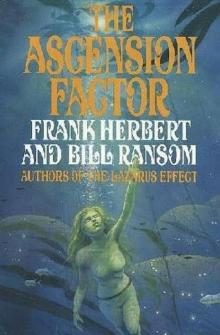 The Ascension Factor
The Ascension Factor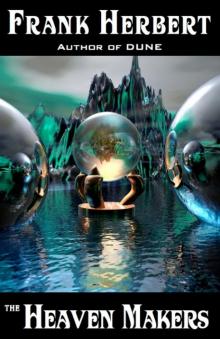 The Heaven Makers
The Heaven Makers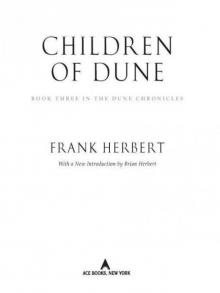 Children of Dune
Children of Dune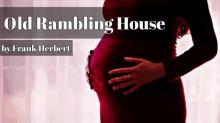 Old Rambling House
Old Rambling House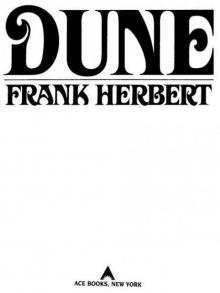 Dune
Dune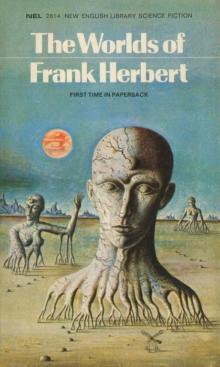 The Worlds of Frank Herbert
The Worlds of Frank Herbert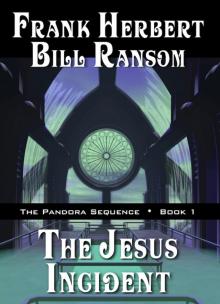 The Jesus Incident
The Jesus Incident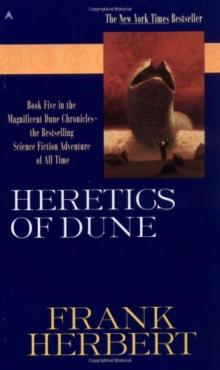 Heretics of Dune
Heretics of Dune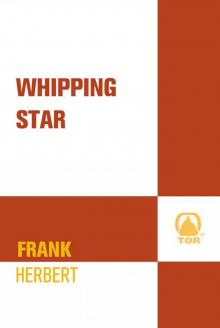 Whipping Star
Whipping Star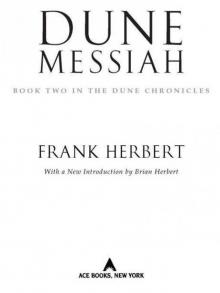 Dune Messiah
Dune Messiah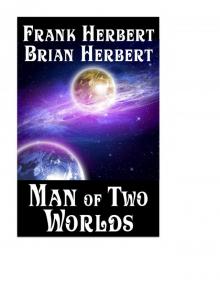 Man of Two Worlds
Man of Two Worlds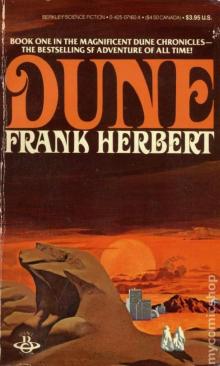 The Book of Frank Herbert
The Book of Frank Herbert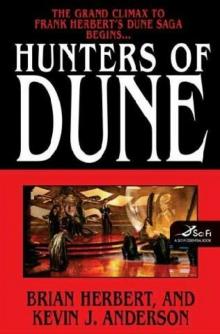 Hunters Of Dune
Hunters Of Dune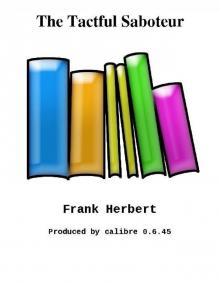 The Tactful Saboteur
The Tactful Saboteur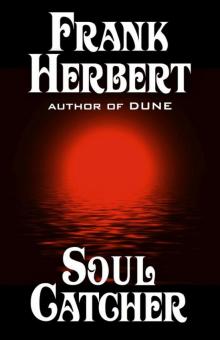 Soul Catcher
Soul Catcher God Emperor of Dune
God Emperor of Dune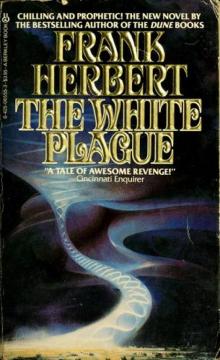 The White Plague
The White Plague The Green Brain
The Green Brain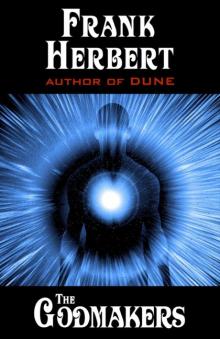 The Godmakers
The Godmakers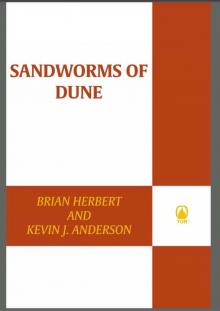 Sandworms of Dune
Sandworms of Dune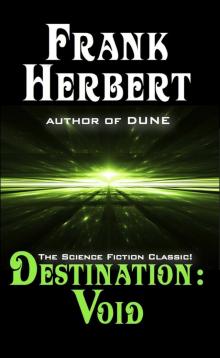 Destination Void
Destination Void The Dosadi Experiment
The Dosadi Experiment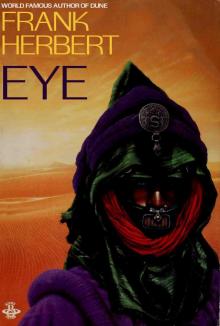 Eye
Eye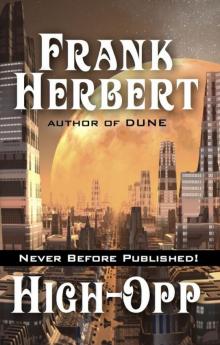 High-Opp
High-Opp The Eyes of Heisenberg
The Eyes of Heisenberg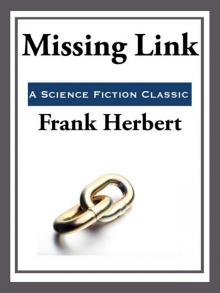 Missing Link
Missing Link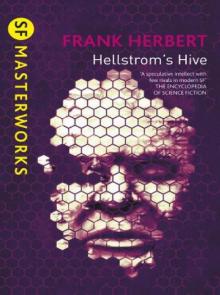 Hellstrom's Hive
Hellstrom's Hive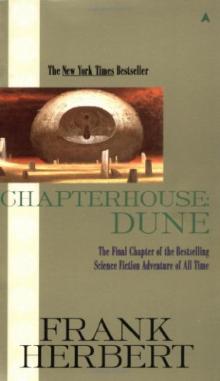 Chapterhouse: Dune
Chapterhouse: Dune The Santaroga Barrier
The Santaroga Barrier The Dragon in the Sea
The Dragon in the Sea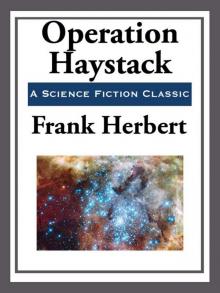 Operation Haystack
Operation Haystack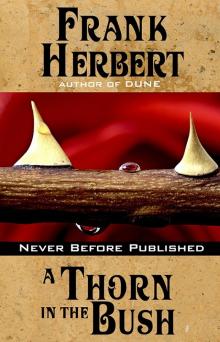 A Thorn in the Bush
A Thorn in the Bush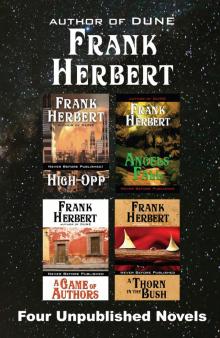 Four Unpublished Novels
Four Unpublished Novels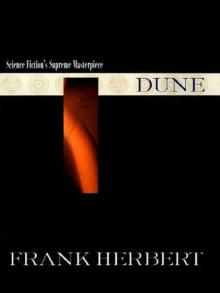 Dune dc-1
Dune dc-1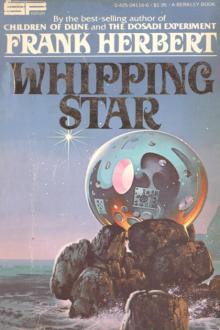 Jorj X. McKie 1 - Whipping Star
Jorj X. McKie 1 - Whipping Star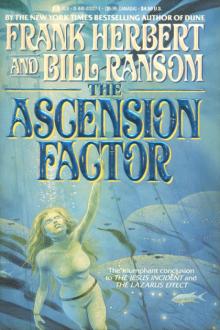 DV 4 - The Ascension Factor
DV 4 - The Ascension Factor Frank Herbert - Dune Book 4 - God Emperor Of Dune
Frank Herbert - Dune Book 4 - God Emperor Of Dune ChapterHouse: Dune dc-6
ChapterHouse: Dune dc-6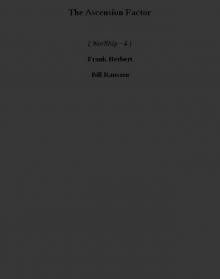 The Ascension Factor w-4
The Ascension Factor w-4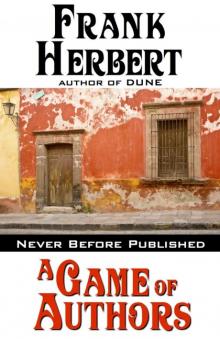 A Game of Authors
A Game of Authors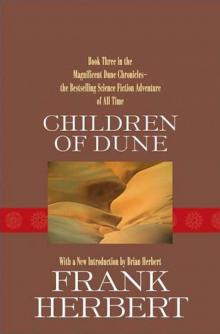 Children of Dune dc-3
Children of Dune dc-3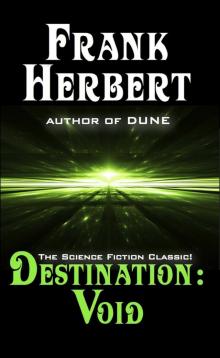 Destination: Void: Prequel to the Pandora Sequence
Destination: Void: Prequel to the Pandora Sequence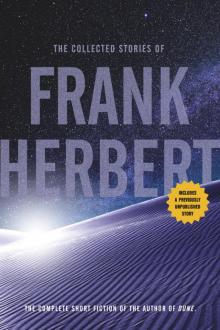 The Collected Stories of Frank Herbert
The Collected Stories of Frank Herbert Dune Messiah dc-2
Dune Messiah dc-2 Frank Herbert - Dune Book 5 - Heretics of Dune
Frank Herbert - Dune Book 5 - Heretics of Dune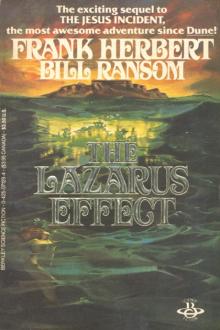 DV 3 - The Lazarus Effect
DV 3 - The Lazarus Effect The Jesus Incident w-2
The Jesus Incident w-2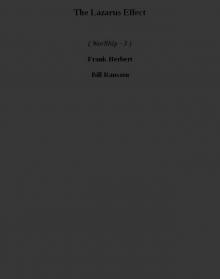 The Lazarus Effect w-3
The Lazarus Effect w-3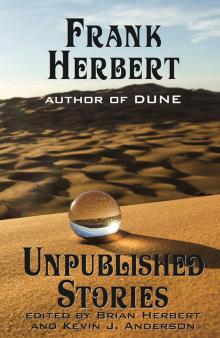 Frank Herbert
Frank Herbert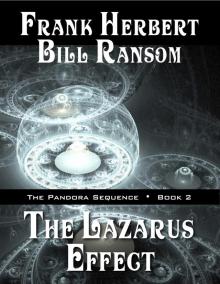 The Ascension Factor: Pandora Sequence
The Ascension Factor: Pandora Sequence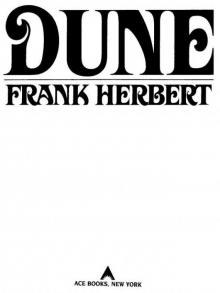 Dune (40th Anniversary Edition)
Dune (40th Anniversary Edition) The Dosadi Experiment c-2
The Dosadi Experiment c-2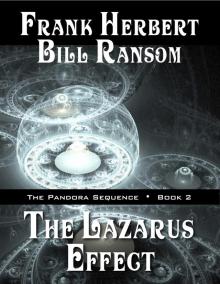 The Lazarus Effect
The Lazarus Effect God Emperor of Dune dc-4
God Emperor of Dune dc-4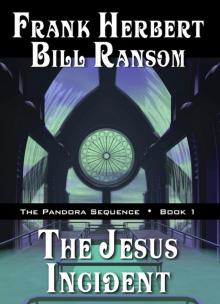 The Pandora Sequence: The Jesus Incident, the Lazarus Effect, the Ascension Factor
The Pandora Sequence: The Jesus Incident, the Lazarus Effect, the Ascension Factor The Green Brain (v4.0)
The Green Brain (v4.0) The Heaven Makers (v4.0)
The Heaven Makers (v4.0) Heretics of Dune dc-5
Heretics of Dune dc-5